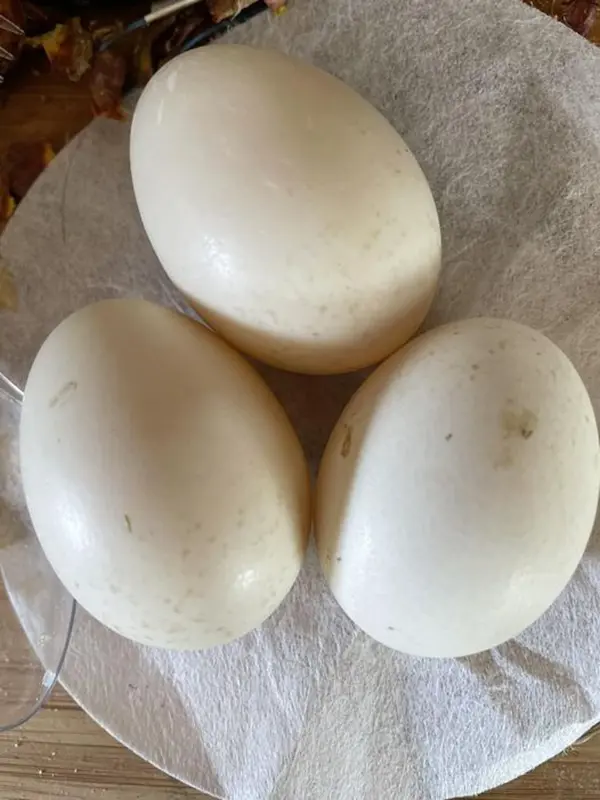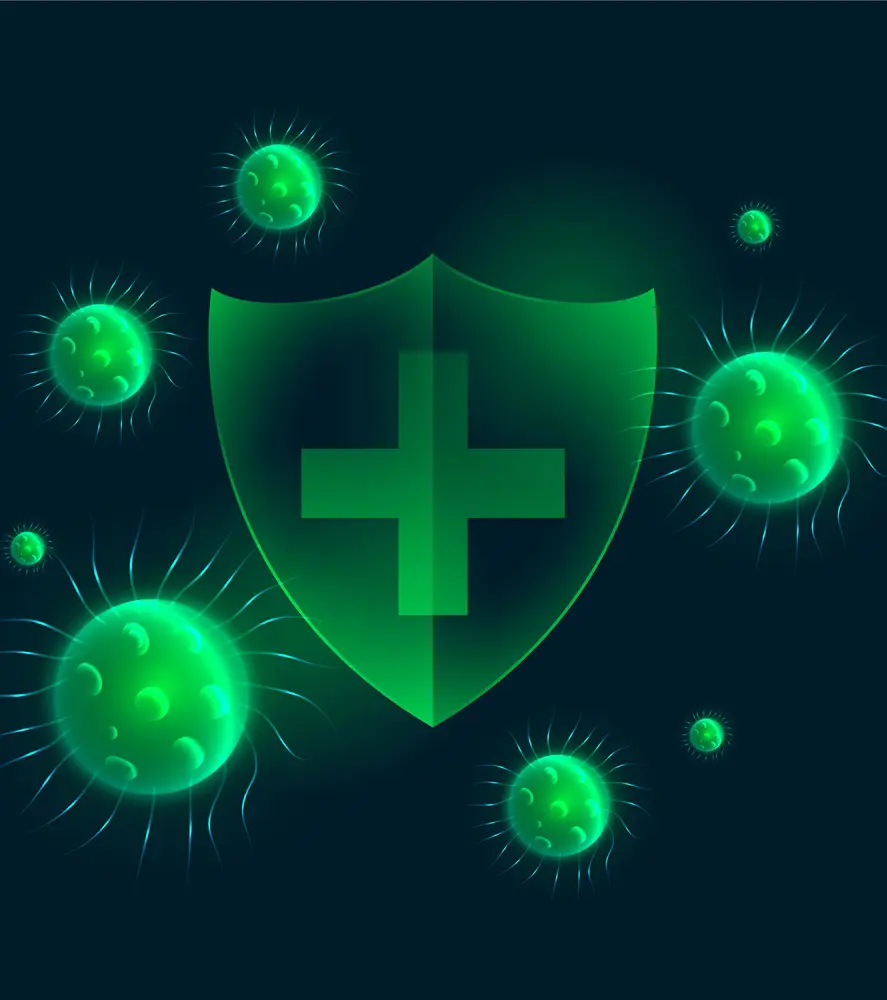Duck Eggs Benefits, Nutrition, And How To Eat?

This post may contain affiliate links. If you make a purchase through links on our site, we may earn a commission.
Believed to have better taste and texture than chicken eggs and significantly bigger, duck eggs are nutrient-packed. They supply a very high amount of protein, omega-3 fatty acids, vitamins and minerals which makes them perfect for people who wish to have an enhanced nutritional value.
Duck eggs can be used to complement your meal in various ways. In this guide, we will discuss the health benefits of duck eggs, the nutritional value of the eggs, and how consumers can add them to their diet.
1. Higher Protein Content

Duck eggs are popular mostly because of their protein value. On average, a single duck egg contains about 9 grams of protein which is higher than that in the chicken egg, which is only about 6-7g per egg depending on its size. This makes them a rather sound source of this macronutrient important in muscular building or repair processes.
Next to protein, the other significant content in duck eggs is fat. They contribute about 9.7 gm of fat per egg, which gives eggs a rich taste as well as texture.
2. Rich In Nutrients

Due to their innumerable qualities for health as attributed to the enhanced nutritional value, duck eggs are well suited for numerous diets. Egg yolk is a rich source of vitamins especially vitamin B12 where each egg provides approximately 168 percent DV. This vitamin helps in the synthesis of red blood cells and the proper functioning of nerve cells.
Furthermore, this nutrient-dense food has huge volumes of selenium, choline and Vitamin A and antioxidants like carotenoids that play important roles in various metabolism processes and prevent diseases.
3. Rich In Omega-3 Fatty Acids

Duck eggs contain the essential fatty acids that help in several ways in the body, especially concerning the proper functioning of the heart and the reduction of inflammation.
Duck eggs contain higher nutritional quality of omega-3 that help decrease potential risks of cardiovascular diseases and increase ability by boosting cognitive capacity. This means that duck eggs are good for people on the ketogenic diet and those who wish to take more of its healthy fats.
4. Reduces The Risk Of Chronic Illnesses

Commonly praised for their ability to provide high concentrations of antioxidants, such as carotenoids and amino acids, duck eggs are a food that helps prevent diseases in the human body.
The nutritional content present in ducks’ eggs, particularly the dark yellow yolk aids in countering oxidation stress as they are loaded with antioxidants. Eradication of oxidative stress can greatly decrease chronic diseases which include heart diseases and certain types of cancer as oxidative stress and chronic diseases are related.
Moreover, some of the processing techniques including salting have been shown to increase the antioxidant potential of duck eggs.
5. Promotes Eye Health

Lutein and zeaxanthin put up a fight against free radicals and can reduce the risks of macular degeneration and cataracts. Also, moderate levels of vitamin A in duck eggs assist in the functioning of the retina and therefore help in eyesight.
In addition, omega-3 fatty acids found in duck eggs improve the structural form of cell membranes of the retina thereby minimizing the chances of formation of dry eye syndrome. Furthermore, their nutritious value enhances proper blood supply to the eye thus eradicating inflammation of the eyes while promoting proper vision and comfort.
6. Boosts Immune System

The nutritional value present in duck eggs can help in enhancing immunity. The presence of vitamin A in the eggs assists in immune modulation, specifically maintenance of the mucosal barriers that prevent infections.
Similarly, other important minerals like selenium contribute to the creation of antibodies and also assist in shielding body cells from oxidative damage.
Other findings reveal that duck eggs contain ovomucin, a protein with some bacteriostatic properties that can be useful in combating some bacterial infections, thus adding up to the immunological defense.
7. Improves Mental Health

There are many health benefits of duck eggs, one of them being improvement in mental health. Duck eggs should be consumed frequently because they contain Vitamin D which helps to cope with mood swings.
The eggs also contain some B vitamins known to help grow nerve cells, make neurotransmitters and regulate mood through the production of a ‘feel good’ hormone or serotonin.
Also, the antioxidant present in the duck eggs helps in combating oxidative stress thus minimizing symptoms of anxiety and depression.
8. Aids In Weight Management

The constituents of duck eggs can assist in increasing satiety thus acting as useful tools in anyone’s plan to slim down. Recognized for stimulating appetite, the protein present in the eggs can effectively decrease calorie consumption per day.
Further, duck eggs are a rich source of healthy fats that help control hunger and have been acclaimed to offer energy that prevents hunger pangs. Also, they have almost no carbohydrates, with the count averaging about one gram, making them perfect for those on low-carb diets.
9. Supports Bone Health

Notably, duck eggs contain calcium, phosphorus, as well as vitamin D. These nutrients are involved in the health of bones and the reduction of diseases that are attributed to reduced bone density. One can obtain approximately 42-64 mg of calcium, 144-220 mg of phosphorus and 1 microgram of vitamin D per duck egg.
Calcium is essential for the development of bones thus preventing osteoporosis and fractures while phosphorus is important in maintaining the structures of teeth as well as bones. Vitamin D required for the proper utilization of calcium in the body is also present in suffice in duck eggs.
10. May Enhance Energy Levels

Since duck eggs are rich in protein, they assist in the retention of muscle mass, which is important in energy production in the body. They also contain all the essential amino acids that are important in energy production processes in the body.
It is also possible to get a considerable amount of iron in duck eggs which plays an essential role in transporting oxygen in the blood. The iron content helps muscles to have enough supply of oxygen during exercise, thus enhancing endurance and reducing tiredness.
11. Supports Healthy Hair

If you have hair issues, consuming duck eggs will help reduce the stress of your hair condition. Protein is very essential for hair growth and maintenance because the protein known as Keratin makes up the major part of the hair structure.
Thus, it can be said that consuming sufficient amounts of protein, particularly from high protein sources like duck eggs, can greatly reduce hair shedding, and stimulate hair development of high-quality strands.
Moreover, some of the vitamins that are vital for healthy hair include the B vitamins; these vitamins enhance blood flow to the head as well as regulate sebum secretion in the head area.
In addition, the nutrients such as zinc and selenium present in duck eggs are important for the growth of tissues and treatments of dandruff.
12. Benefits Your Brain

Duck eggs can be beneficial in improving your brain as they contain some nutrients that help boost one’s mind. The vital nutrient, choline is also found in high concentrations in them which is important in human brain development and function.
Choline plays an important role in the formation of acetylcholine which is a neurotransmitter that affects memory, mood, and muscle tone. Choline availability is proven to have a positive effect on the assessment of learning and memory consolidation. One research conducted among 2,200 other older individuals found that raised choline levels were related to better mental function.
13. Good For Skin Health

Including duck eggs in daily meals is known to go a long way in improving skin health. Duck eggs are packed with necessary nutrients like vitamin B. These vitamins are important in maintaining collagen and protecting the skin from inflammation, skin disorders, dryness, cell damage, and skin infections.
And finally, the action of antioxidants also activates the fight against free radicals that cause early aging and skin damage. Moreover, the fats found in the eggs are useful in enhancing skin moisture, thereby reducing skin dryness and the formation of flakes.
14. May Help Improve Cholesterol Levels

Duck eggs seem to have a unique relationship with cholesterol content in the body mainly due to the richness in cholesterol along with nutritional value. It has been revealed that regular uptake of duck eggs enhances the levels of ‘good’ cholesterol which decreases the rate of occurrences of heart diseases.
Also, the nutrients in duck eggs such as omega-3 fatty acid enhance the lipid profile through reduction in the level of triglycerides and elevation of the level of HDL cholesterol.
15. Allergen-Friendly Option

Duck eggs are often suggested as being suitable for consumption by people who are allergic to chicken eggs. Some individuals who are allergic to chicken eggs may be able to comsume duck eggs since the two have different protein contents.
Chicken eggs contain specific proteins like ovomucoid, ovalbumin and lysozyme that are absent in duck eggs or present in very small traces. This variation can result in a decrease in the probability of an allergic reaction in specific persons.
Nutrition
Duck eggs are loaded with proteins, vitamins A, D, B12, choline and vital minerals such as selenium and iron.
According to USDA, a duck egg of approximately 70 g comprises:
- Water: 49.6 g
- Energy: 130 kcal
- Protein: 8.96 g
- Total lipid (fat): 9.66 g
- Carbohydrate: 1.02 g
- Total Sugars: 0.651 g
- Calcium: 44.8 mg
- Iron: 2.7 mg
- Magnesium: 11.9 mg
- Phosphorus: 154 mg
- Potassium: 155 mg
- Sodium: 102 mg
- Zinc: 0.987 mg
- Selenium: 25.5 µg
- Choline: 184 mg
- Vitamin B12: 3.78 µg
- Vitamin A: 136 µg
- Vitamin D (D2+D3): 1.19 µg
How To Eat?

Duck eggs show great potential in culinary delights because of the several ways they can be used, owing to their taste, texture and nutrient content. Here are some of the ways duck eggs can be used in various dishes:
- Boiling: Like chicken eggs, duck eggs can be either fully boiled or partially boiled. To hard-boil them, place them in a saucepan, then pour cold water over them. Simmer them over high flames and as soon as they reach a gentle boil, remove the pan from heat. Cover them and let them rest for approximately 10 to 12 minutes. For soft-boiled egg, you can immerse it in simmering for about 6-7 minutes. Cooked eggs, especially boiled ones, can be taken as between meal snacks, or added to salads.
- Scrambling: Duck eggs, when scrambled, offer a higher nutritional value and thicker texture relative to normal chicken eggs. To prepare scrambled duck eggs, heat the frying pan over medium and fry the eggs in butter or oil. Stir often and cook until the eggs are solid yet retain some moisture, usually 3-5 minutes.
- Frying: The yolk of the duck eggs is thick and the color when fried is rather good. They are quite similar to chicken eggs and can be fried to the desired consistency. However, they take slightly longer time to cook than the chicken eggs because of the size of the eggs.
- Poaching: To poach a duck egg, heat a pot of water and add vinegar to it. Crack the egg into a small bowl and then slowly pour it into the boiling water. Poach for 3 to 4 minutes till the whites become firm but the yolk remains soft and runny.
- Baking: Because duck eggs have more fat content and bigger yolks, they give the cake, pastry, cookies and any other baked products more moisture and richness.
- Custards and Desserts: With their creamy texture, duck eggs are highly suited for recipes that involve custards, puddings, or ice cream. Similarly, the enhanced fat content is particularly suitable for creating desired textures such as a velvety mouthfeel in desserts.
- Duck Egg Omelet: You can prepare a diverse omelet enriched with vegetables, meats, or cheeses, depending on your preference.
Recent posts
Nutrition
Nutrition
Hard Boiled Eggs Nutrition, Benefits And How To Eat?
Packed with vitamins, minerals, and protein, hard-boiled eggs are a nutritious powerhouse that gives your body endurance and vitality. They are adaptable, simple to make, and pair well with various types of healthy diets. Hard-boiled eggs are rich in...
Nutrition
Are Egg Whites Good For You? Benefits, Nutrition, And How To Eat?
Egg whites are popular these days while egg yolks are considered a health havoc. This claim is not always true but if you are someone who is going through weight gain problems or other conditions like heart disease, it's important to focus on egg whi...
Nutrition
20 Heart Healthy Foods You Must Include In Your Diet
Your heart is your body's engine that functions nonstop to maintain your vitality. It's time to give back to your heart which does so much to you. Eating heart-healthy proper food is one of the simple and effective ways to boost your heart health. Ho...
Nutrition
20 Foods You Can Eat On A Low Residue Diet
A low-residue diet is designed to minimize the amount of undigested food that moves through the intestines, making it beneficial for individuals with certain digestive issues, such as inflammatory bowel disease or before certain medical procedures. T...
Nutrition
15 Moringa Benefits That Can Make You Healthier
Known as the "miracle tree", moringa is celebrated for its remarkable health advantages. This plant’s leaves, flowers, seeds, and roots have been often used in folk medicine as they bear numerous minerals and antioxidant properties. This plant ...
Nutrition
15 Health Benefits of Strawberries That Are Backed by Science
Did you know? The eye-catching bright red-colored, juicy, sweet strawberries are not fruit but an enlarged flower. However, they are one of the most famous and loved berry fruits in the world. Yes, strawberries are high in nutritional value and consi...







